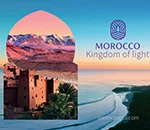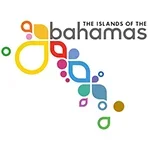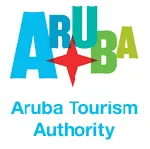 Adriana Sanchez Adriana Sanchez |
It’s no secret that personalization plays a pivotal role in elevating the guest experience. While travel brands have mastered this when it comes to revolutionizing on-property stays, it’s often overlooked when enlisting creators and designing influencer collaborations.
As proven time and time again, personalization is vital in unlocking the full potential of these partnerships and driving significant impact.
In today’s competitive and crowded travel and hospitality landscapes, providing customized experiences is no longer considered a luxury. It has become the essential element in truly setting brands apart. These tailored experiences, based on individual preferences and needs, are what make them so unforgettable. Noteworthy moments and occurrences transform the regular consumer or traveler into lifelong customers by fostering loyalty. They feel seen.
Our data-driven world provides access to more consumer insights than ever before, and industry leaders have cracked the code for how to leverage this data and turn it into a lasting connection. This vast data generated from guests’ previous stays, behavior and interests allows hotels to deeply understand their audience before they even step foot through the door. These data points create countless engagement opportunities throughout their journey, which begins well before a guest’s arrival at the property. Hotels can offer discounts, add-ons and elevated experiences, from curated in-room amenities to individualized concierge recommendations or exclusive dining options. Communication with guests can be constant via their preferred method, all while using their name to evoke a deeper feeling of camaraderie.
| This article is featured in O'Dwyer's July '23 Travel & Tourism PR Magazine (view PDF version) |
Predicting guest needs is as effortless as making their stay feel unique and special. The opportunity for brands to interact with guests through various touch points enables them to not only meet but exceed expectations. And in fact, consumers are demanding they do just that. A recent study released by McKinsey reported that 71 percent of customers want businesses to provide personalized experiences and 76 percent are frustrated if they don’t receive it. This is particularly relevant to the travel space, with 70 percent of guests reporting having a more positive experience at hotels that use personalization techniques.
So, why don’t travel brands use this same approach when it comes to influencer marketing? It helps drive engagement, credibility and more importantly results, too.
For influencers, personalization makes a world of difference and it should start with the very first interaction. As we know, first impressions really can be everlasting and it’s nearly impossible to come back if you start things off on the wrong foot.
During a recent panel in New York City, TikTok creator Rod Thill (1.6 million TikTik followers), who entered the social media spotlight and our mobile feeds during the peak of the 2020 lockdown, shared his biggest red flag when being tapped for a potential brand collaboration: a brief lacking any personality. If the outreach note doesn’t include any personal details or a clear understanding of what he stands for, “it’s a no.” The ask must align with his vision and display a level of research on the brand’s end that proves this is a viable partnership.
This accomplishes two things. First, he immediately knows the brand is serious about collaborating with him. Presumably, they have fully vetted his profile and possess a deep understanding of who he is and what he stands for. Meaning, they’re seeking him out specifically, which could minimize any back-and-forth down the line regarding expectations or content output. All this extensive research typically means that by the time he reviews a personalized brief, it’s likely the right opportunity. Of course, Thill conducts his own due diligence to ensure it’s a fit from his perspective as well.
Second, it develops a level of trust between both parties. No one understands an influencer’s community better than they do—they built it and engage with their followers constantly. They’re viewed as experts for a reason and if brands are able to tap into their unique perspectives and insights by trusting them enough to give them creative freedom, the results will speak for themselves.
Another form of successful personalization when working with influencers takes things one step further. Rather than purely engaging partners to develop assets or post content on their channels, brands are reaping the benefits of co-creating. As seen with Christina Najjar (i.e., Tinx; 1.5 million TikTok followers) also known as “TikTok’s big sister,” and the launch of Tabasco’s first-ever product collaboration—a limited edition jalapeño dressing. Tinx is known to overshare every detail of her life with her followers and opens up to them as if they were her friends. She often posts the food she’s eating and salads smothered in hot sauce are a regular occurrence. “Normalize hot sauce as dressing,” she repeats. So, when Tabasco approached her for this collaboration, it was a no-brainer and a win-win for both parties. The brand had seen a growth in interest from Gen Z and this was a great way to authentically build credibility with that particular demographic.
These kinds of collaborations also foster long-term relationships between influencers and brands, which drive better and long-lasting results.
Social listening can also play an important role when finding the right influencer partner. Brands should be mining for organic partnership opportunities and using them to their advantage, knowing influencers are regularly sharing their day-to-day. A brand-influencer pairing that made headlines last month with influencer Alix Earle (5.4 million TikTok followers) is a testament to just how impactful it can be. The recent Miami University graduate, who gained tremendous popularity earlier this year, was on a Euro trip with friends when she suddenly found herself stranded without a place to stay in Italy following a booking scam. AirBnB quickly jumped to the rescue and put the group up in a luxurious Positano villa. Earle went on to post a tour of the villa thanking and tagging the brand for saving the day. Not only did she post organically numerous times to her millions of followers, but the stunt was picked up by major outlets resulting in thousands of dollars worth of earned value.
Travel brands must evolve their influencer marketing strategies to not only include personalization but be at the center of everything they do—just like when dealing with guests.
***
Adriana Sanchez is Vice President, Digital, at Magrino PR.


 Weber Shandwick is providing PR and marketing communications services to the Moroccan National Tourist Office in New York.
Weber Shandwick is providing PR and marketing communications services to the Moroccan National Tourist Office in New York. Finn Partners has filed its six-month contract with the Bahamas Ministry of Tourism, Investments & Aviation, which is worth $240K.
Finn Partners has filed its six-month contract with the Bahamas Ministry of Tourism, Investments & Aviation, which is worth $240K. Weber Shandwick wrapped up its work for the Ministry of Bahamas at the end of 2023.
Weber Shandwick wrapped up its work for the Ministry of Bahamas at the end of 2023. The Aruba Tourism Authority is boosting its budget 29.4 percent to $2.2M at Zeno Group, according to its 2024 contract, effective Jan. 1.
The Aruba Tourism Authority is boosting its budget 29.4 percent to $2.2M at Zeno Group, according to its 2024 contract, effective Jan. 1. As inflation continues to impact spending, consumers are revisiting their list of what they’re willing to spend more of their money on. Luckily for those in the travel industry, experiences seem to be trending up on the “splurge” list.
As inflation continues to impact spending, consumers are revisiting their list of what they’re willing to spend more of their money on. Luckily for those in the travel industry, experiences seem to be trending up on the “splurge” list. 


 Have a comment? Send it to
Have a comment? Send it to 
No comments have been submitted for this story yet.